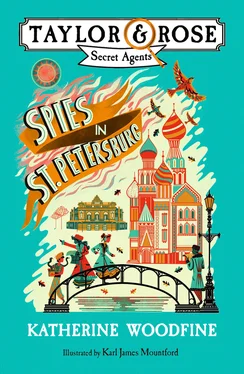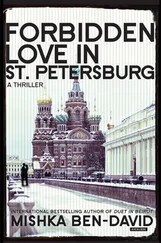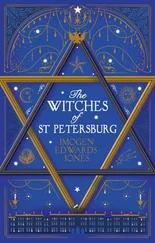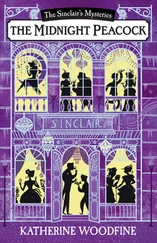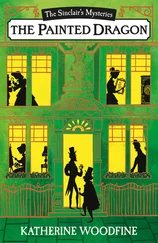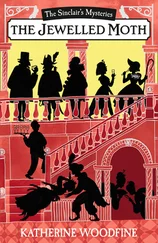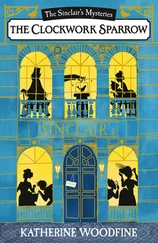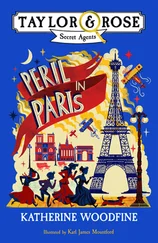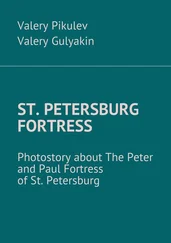Nakamura had been looking down at the map, as though already working out their route. He’d glanced up and raised his eyebrows at Sophie. ‘Well . . . there’s only one way to find out,’ he’d said simply.
And Nakamura had been right. She’d come so far already: there was no sense in giving up. By the time they’d arrived in Milan, her sources were reporting that the Count had left Sweden for St Petersburg, in Russia, where he’d made arrangements to store his plane – suggesting he planned to stay there for a little while at least. A telegram to the Chief had ensured papers were ready for them to collect in Zurich, which would eventually allow them to travel over the border to Russia.
Once they’d arrived in St Petersburg, Sophie had put her detective skills to work, eventually tracking down the Count’s aeroplane, stored in a farm shed not far from the airfield. From there she’d worked hard to locate the man himself, who she learned had taken a room in one of the city’s dingier hotels, under the name of ‘Herr Schmidt’.
‘I bet he’s meeting someone from the Fraternitas here to hand over the notebook,’ she’d said to Nakamura that evening, over a Russian dinner of unfamiliar, strangely fragranced dishes. ‘He can’t have given it to them yet.’
‘How can you be sure?’ Nakamura had asked.
‘If he had, they’d have paid him well for it – and that hotel doesn’t look like the sort of place that a member of a Royal family would stay, if they had money.’
For the next two days, she’d watched the Count’s hotel but there had been no sign of him. She’d barely been able to bring herself to stay away for a few hours’ sleep, she’d been so determined not to miss her chance. At last, her persistence had been rewarded: she’d glimpsed the Count slipping out of the hotel, and hurrying along the street. Was he going to meet his Fraternitas contact at last?
But no meeting had taken place. Instead, Sophie had tracked him to a bank on the Nevsky, where after a short conversation with a clerk, he’d passed a small parcel wrapped in brown paper over the counter. Afterwards, she’d followed him to Wolff’s, where he’d bought an Arnovian newspaper; to a café where he’d sat at a table in the darkest corner, and furtively eaten a large pastry, topped with chocolate and cream; and finally, strangest of all, to Rivière’s, the city’s most magnificent jeweller, where he’d lingered outside for a while, as if trying to pluck up the courage to venture in.
He’d spoken to no one but the cake-shop waitress and the bank clerk. He’d walked with his head down and his collar turned up against the wind. Sophie knew he’d been a military man, who had won medals for his bravery, but he hadn’t looked brave, nor in the least like someone who until recently had hoped to rule a country. Instead, he’d looked only lonely, tired – and afraid.
‘He’s hiding,’ she’d said to Nakamura. ‘He’s worried about being caught, even here.’
‘What about the notebook?’
Sophie had leaned her chin in her hands. ‘I’m pretty sure the notebook is what was inside that brown paper parcel. It looked to me as though he was putting it into a safe deposit box at the bank, which is rather interesting.’
‘Why?’ Nakamura had asked. ‘I would think that was a very sensible thing to do.’
‘Oh, of course. It’s absolutely sensible. In a bank vault it’s safe – there’s no risk of someone like me trying to steal it. But I don’t believe he’d have put the notebook into the bank if he was expecting to hand it over to the Fraternitas immediately. He must be expecting to wait for at least a few days.’ She couldn’t help thinking that was rather strange. She knew how important the notebook was to the Fraternitas , and how much they wanted the information it contained. Why would they delay collecting it from the Count?
What’s more, how was she to get hold of it now? If the Count had kept it in his hotel room, or even in his pocket, she’d have had a chance at stealing it. But locked away in a bank vault? That would be impossible. She’d have to wait for the Count to withdraw it from the bank to give it to his Fraternitas contact before she’d have her chance.
She’d kept a careful watch on the Count, but even after a week had passed he hadn’t returned to withdraw the notebook. It had been time for a new strategy, so she had come to Rivière’s.
Now, under the twinkle of the crystal chandelier, the Count was saying to her: ‘You must get quite used to these treasures, being surrounded by them every day.’
‘Oh, I don’t believe I could ever get used to them!’ Sophie replied. ‘I have my own special favourites too.’
She’d intended to point to one of the bird music boxes, but a sudden instinct made her point instead towards a silver box with a delicate enamel painting of a London scene on its lid – the river and the spires of Westminster.
The Count turned to examine it. ‘A lovely English scene. You are English, are you not, mademoiselle ?’
Sophie felt triumphant. She’d been talking to the Count at Rivière’s for several days – but this was the first time he’d asked her a question about herself. ‘Yes, from London,’ she replied casually. ‘This reminds me of home, which seems very far away. You’re far from home too, aren’t you?’
She said it as lightly as she could, turning slightly away to close the door of the cabinet, so the Count could not see her face. She dared to add: ‘From Arnovia, I think?’
Even though she wasn’t looking at him, she felt the Count stiffen. There was a moment of tense silence, in which she locked the cabinet door and then turned to him with an expression of perfect innocence.
‘You know Arnovia?’ he asked, in a hoarse voice.
‘Oh no, not really. I’ve never been there. But I met a couple of Arnovians once, and I remember what they sounded like.’ No lie in that. She had met some Arnovians once, if you counted those brief moments on the airfield in Paris, when she and Lil had rescued Crown Prince Alex with Princess Anna’s help. ‘I believe it’s a lovely place,’ she added.
Relaxing now, the Count nodded. ‘It is,’ he agreed, wistfully. ‘The mountains are beautiful. And Elffburg, the capital – it is a perfect little city. There’s nowhere else like it.’
‘You must miss it very much,’ said Sophie. ‘I know I miss London.’
But the Count only nodded briefly, as if realising he’d stayed longer than he should have. ‘I’ve taken up too much of your time, mademoiselle . Thank you for showing me the opera glasses.’
Sophie smiled in her friendliest manner. ‘Come again. It’s been a pleasure to talk with a fellow exile.’
The Count looked at her sharply. ‘Exile?’ he repeated.
Her face remained innocent as she replied: ‘Yes – it almost feels like that, doesn’t it, when you’re far from home? Come again and tell me more about Arnovia. Perhaps I’ll go there one day. I’d like to see Elffburg – and I hear they have the most wonderful cakes!’
The Count’s face broke into an unexpected smile. ‘Indeed they do! The cake shops here are not bad – but I have found only one patisserie , in the Summer Gardens, that does real Arnovian-style pastries.’
‘I’ll have to try it,’ said Sophie.
The Count bowed a polite farewell, and shuffled away – past Irina, who was taking the gold bonbonnière to be wrapped for her customer.
Sophie watched him go, disappearing into the crowds on the Nevsky. It might not have seemed like much of an exchange, but for her it was important. It was a small but significant step towards completing her mission – and she was beginning to think that her plan for getting back the stolen notebook might just work.
Читать дальше
